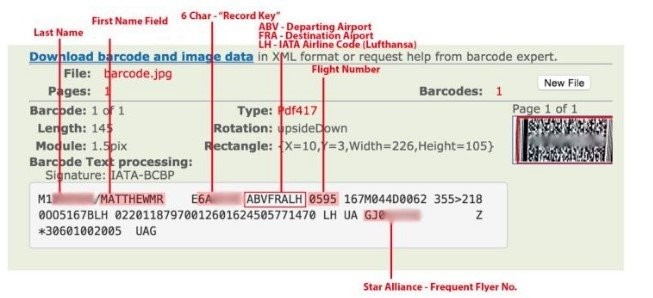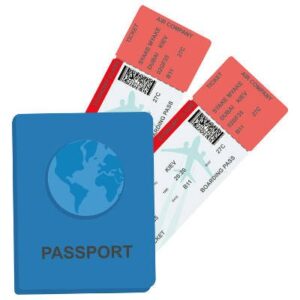Too often, the desire to share an exciting travel destination with the world overrides any security or safety concerns one might have. Even people who are traveling for business will use social media to document their trip as a method of promoting their attendance at the event over social media. This includes photographing and sharing proprietary documents, like boarding passes and passports.
The process of finding and accessing personal information from a boarding pass is a lot easier than most people would imagine. There are several different websites and applications available to anyone who has access to the internet that take pictures of barcodes, QR codes, data matrix, postal codes, and other encoded information and translate the information it contains. The average boarding pass pulls up name, flight information, frequent flyer information and more. This information can subsequently be leveraged to exploit the pass owner – after all, they now know at a minimum, your first and last name and that you’ll be away from your home for a certain amount of time.

Once an identity thief is able to find out your first and last name, many will look to your social media accounts for personal information. A crafty individual would be able to continue to glean small pieces of information from your life until they recreate enough of your identity to do serious damage to you and your credit.
It’s important to refrain sharing images of your boarding pass online. Promoting your visit to a trade show in Las Vegas is not nearly as important as protecting your identity – and your employer would probably agree. Check the Reciprocal Technologies blog often! We are always looking for tips and alerts to help you keep you and your business safe from cybercrime.



